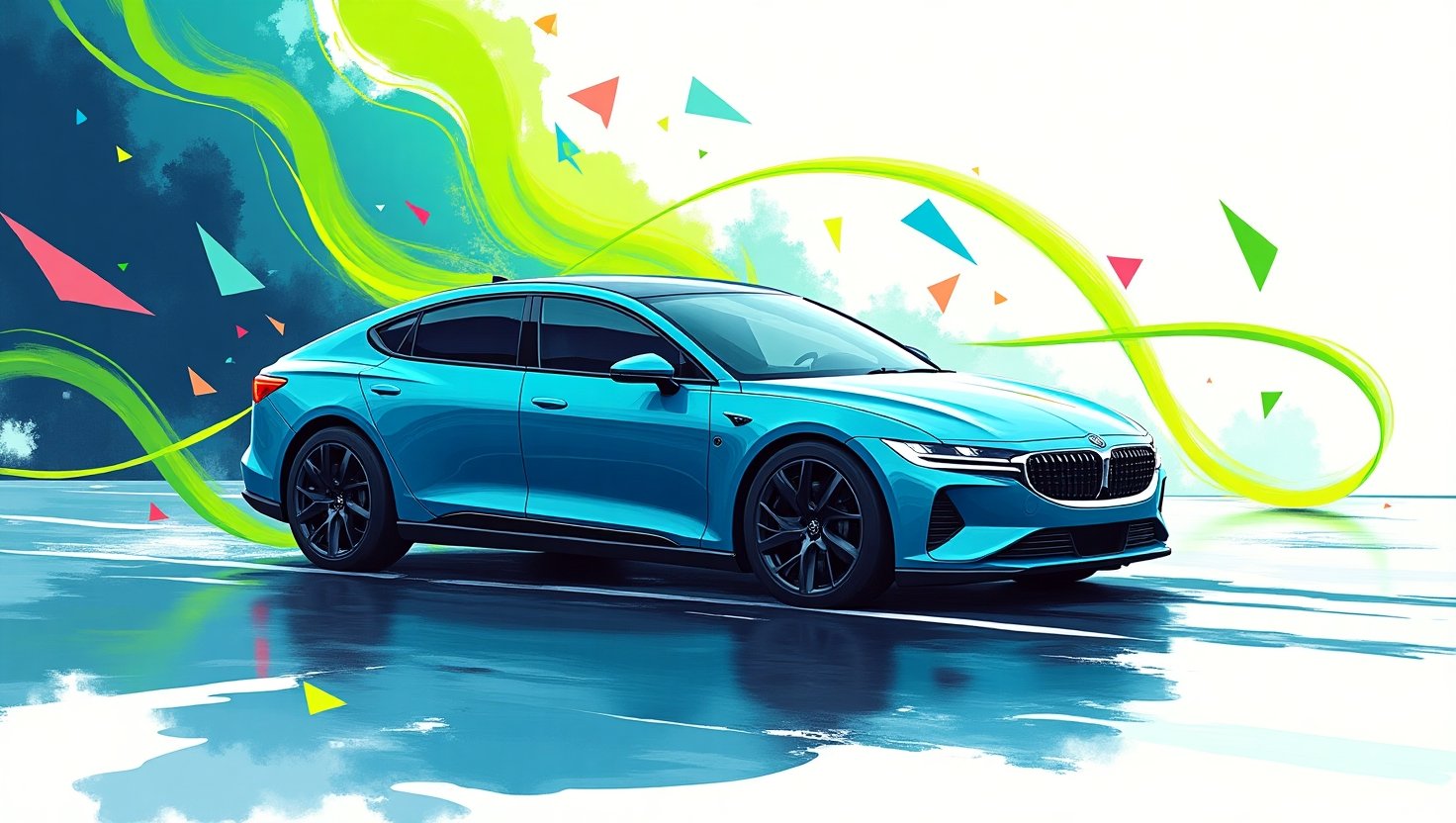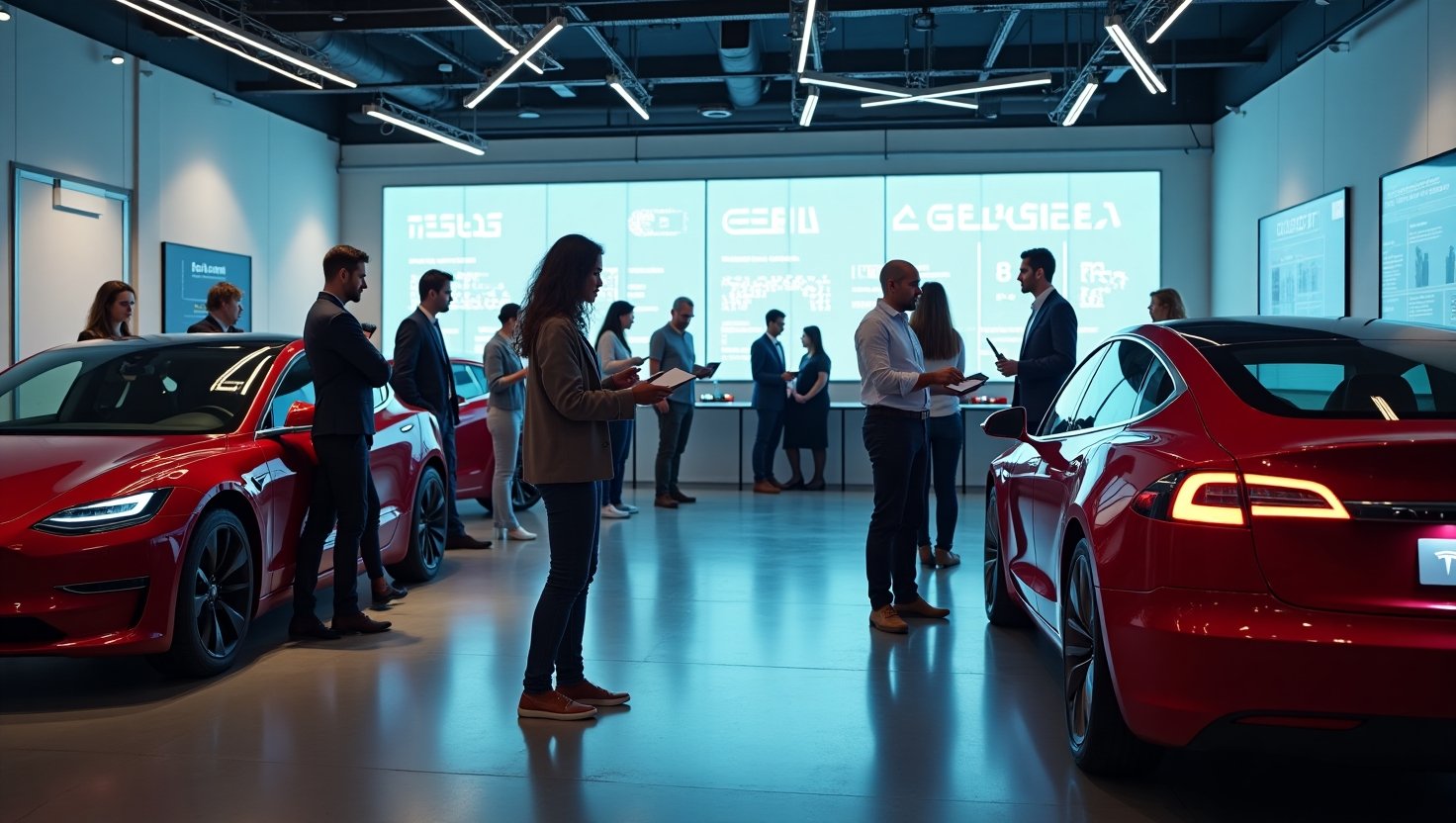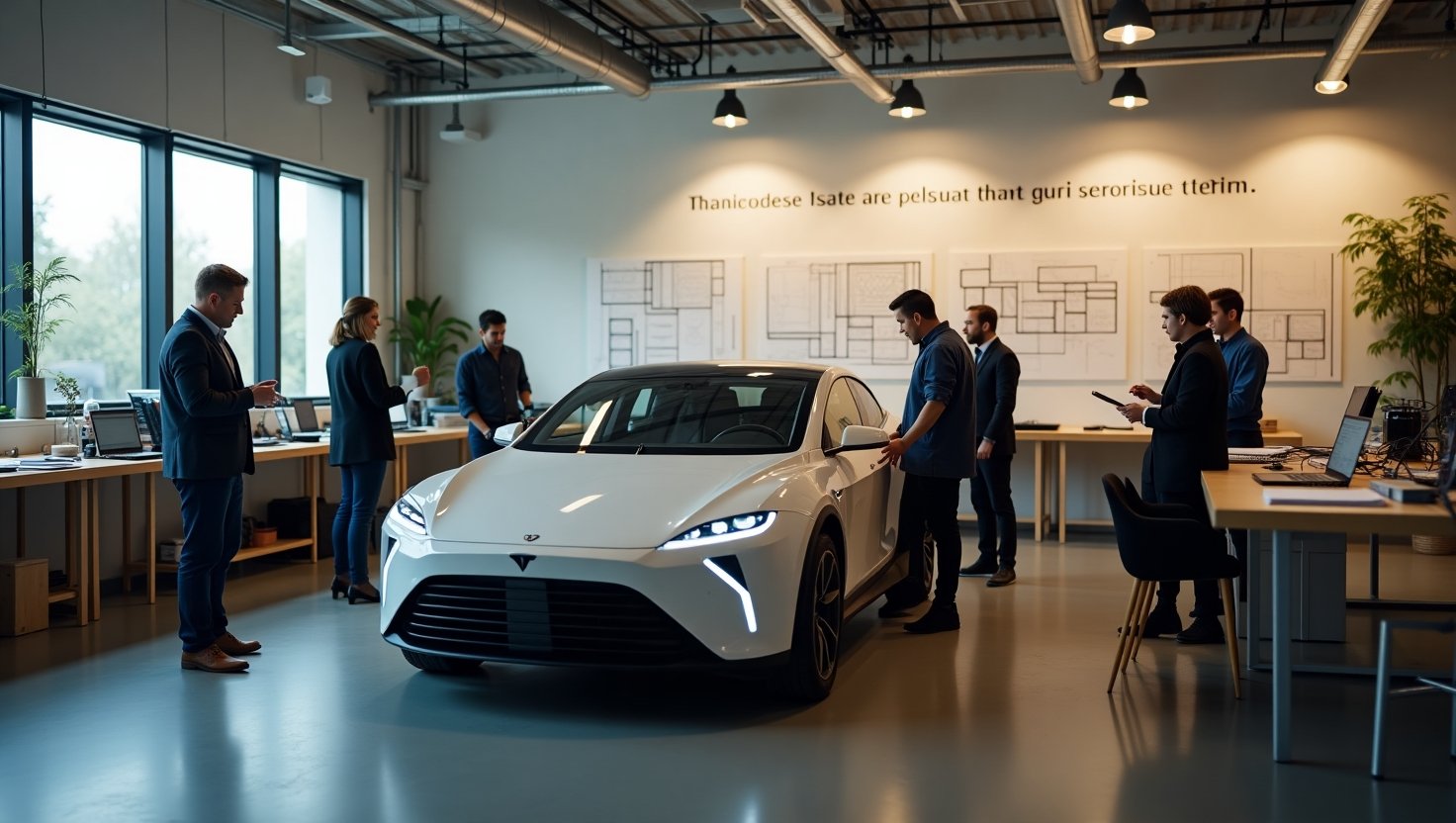In the rapidly evolving landscape of electric vehicles (EVs), Tesla stands out not only for its innovative products but also for its distinctive approach to product reviews. Spearheaded by CEO Elon Musk, the company has cultivated a culture that prioritizes the evaluation of actual hardware and software over theoretical mockups. This commitment to rigorous, real-time product assessments is integral to Tesla’s success, allowing the brand to maintain its competitive edge and drive continuous improvement.
By leveraging weekly meetings focused on tangible outputs, Tesla fosters a unique environment that champions product innovation and keeps pace with consumer expectations. As the industry witnesses an influx of competition, including major players like GM, Tesla’s methodology serves as a beacon of how reviewing and refining real products can lead to revolutionary advancements, shaping the future of mobility in an era marked by electrification innovations.
This article delves into Tesla’s approach, exploring how their review culture not only fuels creativity but also has profound implications for the entire EV market. Furthermore, we will analyze emerging EV market trends that impact the industry landscape and consumer choices.
| Key Aspect | Tesla’s Approach | GM’s Approach |
|---|---|---|
| Frequency of Product Reviews | Weekly meetings focusing on actual products | Periodic reviews, often announced publicly |
| Types of Products Reviewed | Actual hardware and software, including prototypes | Future models, established EVs like Chevy Bolt |
| Outcome of Strategies | Continuous innovation, rapid iteration on products | Introduction of numerous EV models, improving sales |

The Significance of Product Innovation in the EV Market: Trends, Drivers, and Market Analysis
In the dynamic electric vehicle (EV) landscape, product innovation serves as a cornerstone for success, particularly as companies navigate emerging electric vehicle trends. Leaders like Tesla and GM are prime examples of how emphasizing real products over theoretical mockups can create a substantial competitive advantage. For Tesla, the focus on continuous product innovation has resulted in groundbreaking vehicles such as the Model 3, positioning it as a leader in the global market and aligning with the sustainable driving movement.
The company’s strategy includes regular review practices that prioritize actual hardware and software, fostering an innovation cadence that keeps the company ahead of its competitors. As electric vehicle trends shift, the emphasis on sustainability and technological advancements becomes paramount in shaping consumer preferences.
Similarly, GM, now the second-best-selling EV brand in the U.S., showcases its commitment to product innovation with a diverse lineup of 17 fully electrified vehicles. This commitment to innovation stems from a recognition that steady, incremental improvements and iterations on real products are crucial in aligning with consumer demands for sustainable driving.
The importance of product innovation cannot be overstated. It not only drives technological advancements but also shapes a company’s culture around continuous improvement. As competition intensifies in the EV market, the ability to adapt, innovate, and iterate on real products becomes essential for long-term sustainability and relevance. While mockups may serve as preliminary concepts, they lack the robustness of real-world applications that lead to authentic consumer feedback and development.
Moreover, focusing on product innovation strengthens brand loyalty. Consumers are increasingly aware and critical of technological advancements, and they demand vehicles that integrate cutting-edge features while being reliable. This necessitates rigorous testing and evaluation, which ties back into Tesla’s practice of weekly reviews. By evaluating real products consistently, companies can enhance their offerings based on valuable insights, creating a cycle of improvement that contributes to their success in a rapidly evolving marketplace. In this light, organizations prioritizing product innovation will not only thrive but could very well shape the future of the electric vehicle industry.
“No slides was our first rule. You have to be reviewing real product.” – Elon Musk
This quote underscores Tesla’s philosophy of prioritizing real product evaluations over theoretical concepts, emphasizing that genuine assessments are fundamental to driving innovation in the company.
User Adoption Data of Tesla Vehicles
As of 2023, Tesla remains a leader in the U.S. electric vehicle (EV) market, achieving significant sales growth amidst rising competition. Here are some key statistics about Tesla’s user adoption:
-
Sales Performance: In 2023, Tesla sold around 674,000 EVs in the U.S., a 25.4% increase from the previous year. However, Tesla’s market share declined from 60% in 2020 to 48% in 2024, reflecting increased competition from other manufacturers
(source)
(source). - Best-Selling Models: The Tesla Model Y became the top-selling EV at 394,497 units, with the Model 3 following at 220,910 units. These figures indicate strong consumer appeal, emphasizing performance and advanced technology.
-
Overall Market Trends: In 2023, the U.S. EV market saw nearly 1.4 million EVs sold, making up 9.1% of total vehicle sales, rising from 5.7% in 2022
(source). This growth points to a robust shift in consumer preference towards electric vehicles. -
Emerging Competition: Companies like Ford and Hyundai are gaining traction in the market. Ford’s share increased from 4.7% to 6.2% and Hyundai’s from 4.2% to 5.4%
(source)
(source). -
Innovative Edge: Tesla’s focus on over-the-air software updates, which significantly improve vehicle functionality, coupled with the expansion of the Supercharger network facilitates greater user adoption
(source). This growing infrastructure enhances the user experience and opens up revenue channels for Tesla.
In conclusion, while Tesla remains dominant in the U.S. EV market, the competition is intensifying, signaling a dynamic future. Continuous innovation in software updates and charging processing capabilities is pivotal for sustaining market leadership as other manufacturers ramp up their efforts in the electric vehicle sector.
The Impact of Tesla’s Company Culture on Innovation
At Tesla, the essence of innovation is deeply rooted in the company’s culture, which has been shaped significantly by leaders like Elon Musk and Jon McNeil. This culture is characterized by a relentless focus on tangible outcomes, exemplified by the practice of evaluating actual products rather than relying on theoretical mockups. This approach enables the company to iterate quickly and effectively, driving remarkable efficiencies in product development.
Elon Musk’s leadership encourages an environment where employees feel empowered to challenge conventional wisdom and think outside the box. This is evident in Tesla’s weekly product review sessions, which prioritize hands-on assessments of vehicles and software. By engaging directly with real products, teams are not only able to identify flaws but also to explore innovative solutions that might not be evident through traditional design processes. Jon McNeil, as a former President of Global Sales and Service at Tesla, reinforced this philosophy by emphasizing the importance of real product experiences in shaping customer satisfaction and driving improvements.
The synergy between Tesla’s leaders and its engineers fosters an atmosphere where creativity can flourish. The company’s commitment to a high degree of transparency within teams facilitates open discussions and collaboration that lead to groundbreaking ideas. Employees are encouraged to take risks, and this is paramount in a sector like electric vehicles, where rapid advancements are necessary to stay ahead of competitors. The freedom to experiment without fear of failure allows Tesla to evolve its offerings continually and respond adeptly to market demands.
Furthermore, this culture translates into Tesla’s product review process, which not only seeks perfection in individual components and features but also ensures that new products are viable in real-world scenarios. For instance, when evaluating the latest iteration of the Model 3, designers and engineers assess everything from technological integration to user experience, solidifying the connection between innovation and practical application.
The direct correlation between Tesla’s culture of rigorous evaluations and its product development cycle lays the groundwork for its success in the automotive market. By embracing a hands-on methodology, Tesla is capable of rapidly refining its products, which ultimately leads to shorter development times and faster market entries. This efficiency not only speeds up the innovation cadence but also solidifies Tesla’s position as a leader in the electric vehicle space.
In summary, Tesla’s company culture, driven by the leadership of figures like Elon Musk and Jon McNeil, and reinforced by a rigorous focus on real product evaluations, cultivates an innovative spirit essential for the future of mobility. The emphasis on collaboration, creativity, and efficient product review processes contributes significantly to the company’s ability to push the envelope in electric vehicle development, setting a powerful example in the industry.

Conclusion: The Future of Tesla’s Innovation Strategy
As we look to the future, Tesla’s innovation strategy remains a cornerstone of its sustained success in the electric vehicle market. The company’s commitment to a rigorous product review culture, where actual hardware and software are assessed weekly, not only drives immediate improvements but also sets a precedent for long-term innovation. This meticulous approach allows Tesla not just to react to market demands but to anticipate and shape them, ensuring it remains at the cutting edge of technology in the automotive sector.
Critically, this focus on real-time feedback fosters a unique cycle of continuous improvement that competitors like GM are beginning to emulate. By observing Tesla’s ability to innovate rapidly and iterate effectively, GM has ramped up its own efforts, introducing a slew of new electric vehicles and refining existing models. Tesla’s culture instills a spirit of agility and fearlessness, encouraging teams to innovate without the constraints of traditional automotive development processes.
As Tesla continues to push boundaries with its product development strategies, it stands to impact the broader EV industry profoundly. The company’s practices could inspire other manufacturers to adopt similar review methodologies, leading to an industry-wide elevation in product quality and consumer satisfaction. This shift will not only heighten competition but will also accelerate the transition to electric vehicles on a global scale.
With its eyes firmly set on the future, Tesla’s commitment to innovation—driven by its review culture and customer-centric focus—will likely shape the electric vehicle landscape for years to come. Maintaining this level of dynamism and adaptability will not only secure Tesla’s position as a leader but may redefine what it means to be a player in the rapidly evolving automotive market.
- Product Review Culture: Tesla emphasizes a unique product review process led by CEO Elon Musk, prioritizing the evaluation of actual hardware and software over theoretical designs. This culture promotes continuous improvement and innovation.
- Weekly Evaluation: The practice of weekly meetings to assess real products allows for rapid iterations, enabling Tesla to stay ahead in the fast-paced EV market.
- Impact on Competitors: Tesla’s emphasis on real product feedback has encouraged competitors like GM to enhance their strategies, leading to a wider variety of electric vehicles entering the market and intensifying competition.
- Innovation and User Experience: The focus on direct evaluations strengthens the connection between innovation and customer satisfaction. It facilitates the identification of flaws and encourages innovative solutions.
- Market Leadership: As of 2023, Tesla continues to lead the U.S. electric vehicle market, although it faces growing competition, underscoring the importance of maintaining a strong focus on product innovation.
- Cultural Influence: The culture fostered by leaders like Elon Musk and Jon McNeil cultivates creativity and risk-taking, essential for responding to quick advancements in technology and consumer expectations.
- Future Prospects: Tesla’s approach to product innovation not only shapes its own strategy but is likely to influence the broader EV industry, promoting higher standards in product quality and consumer satisfaction.

The Impact of Tesla’s Company Culture on Innovation
At Tesla, innovation is deeply ingrained in the company culture. This culture has been shaped significantly by leaders like Elon Musk and Jon McNeil. It focuses on tangible outcomes by evaluating actual products instead of relying on theoretical mockups. This practical approach allows the company to iterate rapidly and efficiently, driving significant improvements in product development.
Elon Musk’s leadership creates an environment where employees are encouraged to challenge traditional ideas and think creatively. This is evident in Tesla’s weekly product review sessions. These sessions prioritize hands-on assessments of vehicles and software. By working directly with real products, teams can identify flaws and explore innovative solutions that may not be apparent through traditional design processes. Jon McNeil, former President of Global Sales and Service at Tesla, highlighted the value of real product experiences in enhancing customer satisfaction and driving improvements.
The synergy between Tesla’s leaders and its engineers fosters a creative atmosphere. The company’s commitment to transparency encourages open discussions and collaboration, leading to groundbreaking ideas. Employees are empowered to take risks, which is crucial in the electric vehicle sector, where rapid advancements are essential to maintaining a competitive edge. The freedom to experiment without the fear of failure enables Tesla to continuously evolve its offerings and adeptly respond to market demands.
Moreover, this innovative culture translates into Tesla’s product review process. It seeks perfection in individual components and ensures that new products are viable in real-world scenarios. For example, when evaluating the latest iteration of the Model 3, designers and engineers assess everything from technology integration to user experience. This solidifies the connection between innovation and practical application.
Freshly evaluating this culture reveals its significant success in user adoption. Metrics indicate that the efficiencies and insights gained from Tesla’s rigorous evaluations are directly linked to its growing user base and strong sales figures. The correlation between hands-on methodologies and customer satisfaction is crucial. Tesla’s commitment to innovation and quality has established strong brand loyalty among consumers seeking advanced EV solutions.
Conclusion: The Future of Tesla’s Innovation Strategy
As we look to the future, Tesla’s innovation strategy remains a cornerstone of its sustained success in the electric vehicle market. The company’s commitment to a rigorous product review culture, where actual hardware and software are assessed weekly, not only drives immediate improvements but also sets a precedent for long-term innovation. This meticulous approach allows Tesla not just to react to market demands but to anticipate and shape them, ensuring it remains at the cutting edge of technology in the automotive sector.
Elon Musk emphasizes the emotional connection that Tesla aims to establish with its drivers, stating, “Tesla cars are designed to be hilariously fun to drive,” highlighting their focus on creating exhilarating experiences for users. This commitment to crafting enjoyable and sustainable vehicles creates an emotional bond between the company and its customers, further solidifying brand loyalty.
Critically, this focus on real-time feedback fosters a unique cycle of continuous improvement that competitors like GM are beginning to emulate. By observing Tesla’s ability to innovate rapidly and iterate effectively, GM has ramped up its own efforts, introducing a slew of new electric vehicles and refining existing models. Tesla’s culture instills a spirit of agility and fearlessness, encouraging teams to innovate without the constraints of traditional automotive development processes.
As Tesla continues to push boundaries with its product development strategies, it stands to impact the broader EV industry profoundly. The company’s practices could inspire other manufacturers to adopt similar review methodologies, leading to an industry-wide elevation in product quality and consumer satisfaction. This shift will not only heighten competition but will also accelerate the transition to electric vehicles on a global scale.
With its eyes firmly set on the future, Tesla’s commitment to innovation—driven by its review culture and customer-centric focus—will likely shape the electric vehicle landscape for years to come. Maintaining this level of dynamism and adaptability will not only secure Tesla’s position as a leader but may redefine what it means to be a player in the rapidly evolving automotive market.
Implications of User Adoption Data for EV Growth
The user adoption data of Tesla vehicles provides critical insights into the future of electric vehicle (EV) growth and competition. As the EV market matures, increasing sales figures combined with dwindling market share highlight both opportunities and challenges. Although Tesla sold approximately 674,000 EVs in 2023, representing a significant year-over-year increase, the decline in market share—from 60% to 48% between 2020 and 2024—signals a changing landscape where competition is intensifying.
This shift implies that while Tesla maintains its market leader status, it needs to innovate and adapt continuously to retain consumer interest amidst a burgeoning array of alternatives from other manufacturers such as Ford and Hyundai. These companies are leveraging their respective strengths to capture market share, emphasizing the necessity for Tesla to not only enhance its product offerings but also improve user experience continuously.
Moreover, the strong sales of popular models like the Model Y suggest that consumer preferences are evolving toward cars that embody both advanced technology and sustainability. Organizations that can offer unique value propositions, such as superior technology integration or improved user experience, are poised for greater success in this climate. The emphasis on over-the-air updates by Tesla can serve as a benchmark for competitors looking to enhance consumer satisfaction.
Ultimately, as the market trends indicate a solid shift towards electric mobility, the implications of user adoption data signify an urgent need for companies to focus on innovation. Continuous improvement in technology, customer engagement, and service infrastructures will be paramount for sustaining growth and securing a competitive edge against emerging rivals in the dynamic EV marketplace.
The Impact of Tesla’s Company Culture on Innovation and Product Development
At Tesla, innovation is not just a goal; it is intricately woven into the company culture, significantly shaped by visionary leaders like Elon Musk and Jon McNeil. This culture emphasizes tangible outcomes, prioritizing actual product evaluations over theoretical mockups. Such a hands-on approach enables rapid iterations, driving remarkable efficiencies in product development that are critical in the fast-paced electric vehicle (EV) market.
Elon Musk’s leadership fosters an environment where employees are empowered to challenge established norms and think creatively. This is evident in Tesla’s practice of conducting weekly product review sessions focused on hands-on assessments of vehicles and software. During these sessions, teams interact directly with real products, identifying flaws and exploring innovative solutions that may not surface through traditional design methodologies. Jon McNeil, as a former President of Global Sales and Service at Tesla, reinforced this philosophy, highlighting how real product experiences inform customer satisfaction and spur improvements.
This synergy among Tesla’s leaders, engineers, and other staff cultivates a creative atmosphere conducive to innovation. The company’s commitment to transparency encourages open discussions and collaboration, leading to groundbreaking ideas. Employees are encouraged to take risks, which is vital in a sector like electric vehicles, where advancements happen at a rapid pace. The freedom to experiment allows Tesla to evolve its offerings continually and respond adeptly to market and consumer demands.
Moreover, this culture evolves within Tesla’s product review process, which seeks not only to perfect individual components but also to ensure that new products are viable in real-world scenarios. For example, assessing the latest iteration of the Model 3 involves evaluating everything from technological integration to user experience, solidifying the nexus between innovation and practical implementation.
The correlation between Tesla’s culture of rigorous evaluations and its product development cycle underpins its success in the automotive industry. By embracing a hands-on methodology, Tesla can rapidly refine its products, leading to shorter development cycles and quicker market entries. As a result, the company enhances its innovation cadence and reinforces its position as a trailblazer in the electric vehicle landscape.
In summary, Tesla’s culture, driven by leaders like Elon Musk and Jon McNeil and reinforced by a diligent focus on real product evaluations, fosters an innovative spirit essential for shaping the future of mobility. The emphasis on collaboration, creativity, and effective review processes significantly contributes to the company’s capacity to push boundaries in electric vehicle development, setting a powerful example across the industry.
“No slides was our first rule. You have to be reviewing real product.” – Elon Musk
This quote encapsulates Tesla’s philosophy, underscoring the importance of prioritizing real product evaluations in driving meaningful innovation.

